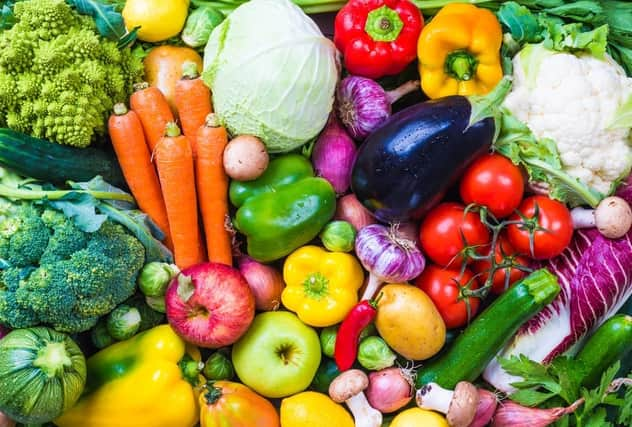Organic vegan diet 'best for planet'


An organic vegan diet is best for the planet but an organic vegetarian diet has less green credentials, a study found.
A diet high in fruit and vegetables was better for the planet than one high in animal products such as meat and dairy.
Advertisement
Hide AdAdvertisement
Hide AdIf the consumer chooses organic food, that provides significant additional climate benefits but not if the diet is not totally vegan.
The study was the first to investigate the environmental impacts of both dietary patterns and farm production systems.
And it was also the first to investigate the environmental impact of organic food consumption using observed diets of more than 34,000 people rather than models.
Recently the UN's Food and Agriculture Organisation has urged the adoption of more sustainable diets at a global level.
Advertisement
Hide AdAdvertisement
Hide AdSuch diets would include reduced consumption of animal products, which have a higher environmental impact than plant-based products.
Animal-based diets have high energy requirements of livestock farming as well as the very large contribution of livestock to greenhouse gas emissions.
Intensive livestock production was also responsible for significant biodiversity loss due to conversion of natural habitats to grass and feed crops.
Sustainable diets
The method of food production may also influence sustainable diets as organic agriculture was generally considered more environmentally friendly than other modern production techniques involving fertilisers and pesticides.
Advertisement
Hide AdAdvertisement
Hide AdWhile many studies have investigated environmentally sustainable diets, these have rarely considered both dietary choices and the production method of the foods consumed.
Louise Seconda from the French Agence De L'Environnement Et De La Maitrise De L'Energie and the Nutritional Epidemiology Research Unit said: "We wanted to provide a more comprehensive picture of how different diets impact the environment.
"In particular, it is of considerable interest to consider the impacts of both plant-based foods and organic foods."
The researchers obtained information on food intake and organic food consumption from more than 34,000 French adults.
Advertisement
Hide AdAdvertisement
Hide AdThey used what's called a 'provegetarian' score to determine preferences for plant-based or animal-based food products.
The researchers also conducted production life cycle environmental impact assessments at the farm level against three environmental indicators: greenhouse gas emissions, cumulative energy demand and land occupation.
It found those with diets rich in plant-based foods were more likely to be older urban dwellers, to hold a higher degree in education and to be characterised by an overall healthier lifestyle and diet.
A higher provegetarian score was associated with lower environmental impact.
Plant-based products
Advertisement
Hide AdAdvertisement
Hide AdOrganic food consumption was also an important modulator of the relationship between provegetarian dietary patterns and environmental impacts but only among participants with diets rich in plant-based products.
Ms Seconda added: "Combining consumption and farm production data we found that across the board, diet-related environmental impacts were reduced with a plant-based diet - particularly greenhouse gas emissions.
"The consumption of organic food added even more environmental benefits for a plant-based diet.
"In contrast, consumption of organic food did not add significant benefits to diets with high contribution from animal products and only moderate contribution from plant products."
Advertisement
Hide AdAdvertisement
Hide AdHowever the researchers caution the environmental effects of production systems are not uniform and can be impacted by climate, soil types and farm management.
She said: "We didn't look at other indicators such as pesticide use, leaching and soil quality which are relevant to the environmental impacts of productions systems.
"Therefore future studies could also consider these as well as supply chain and distribution impacts of food production."
She said future research were needed to confirm these results and to expand our understanding of how the entire food production lifecycle impacts sustainability.
The study was published in the journal Frontiers in Nutrition.